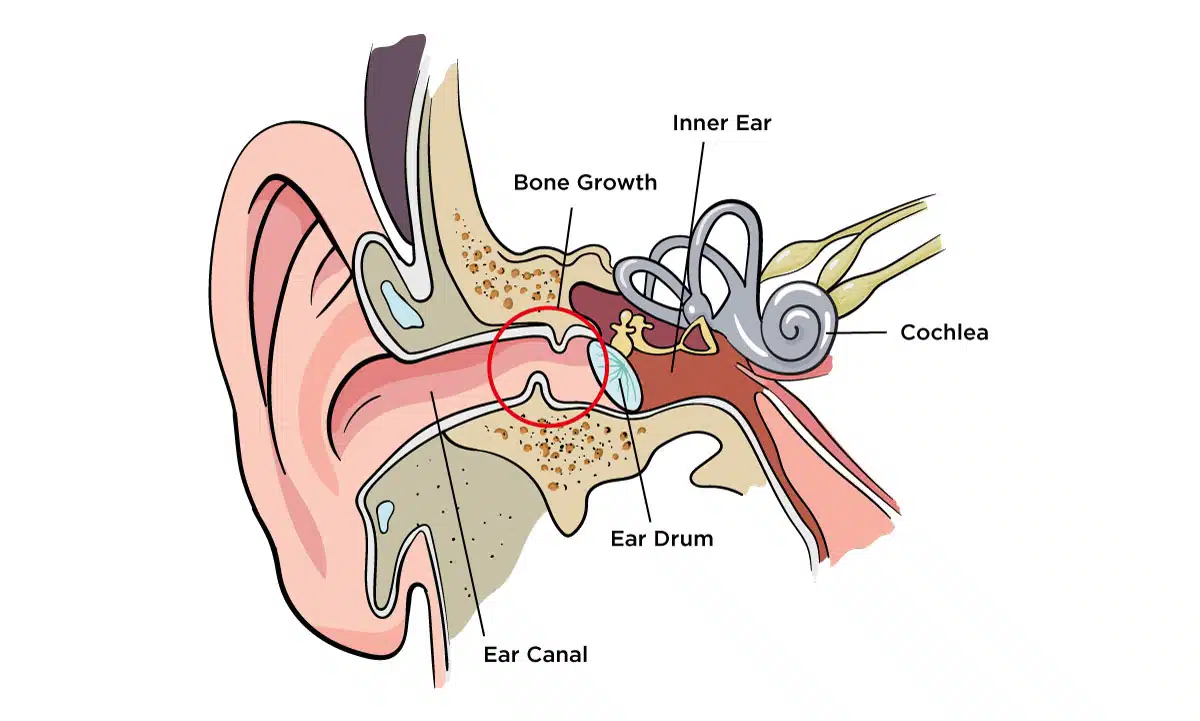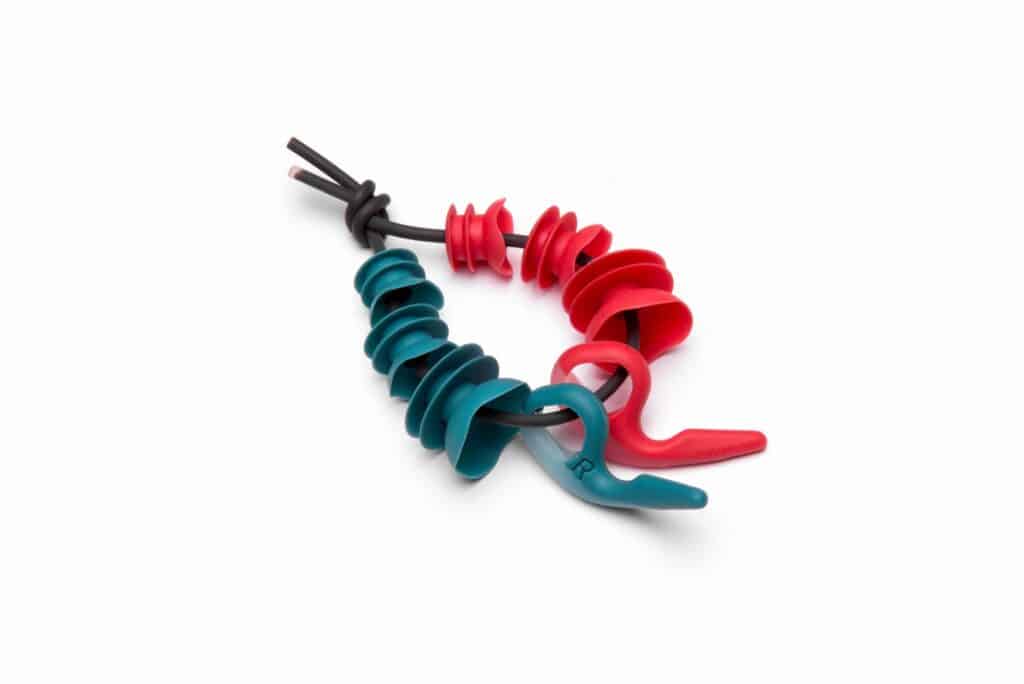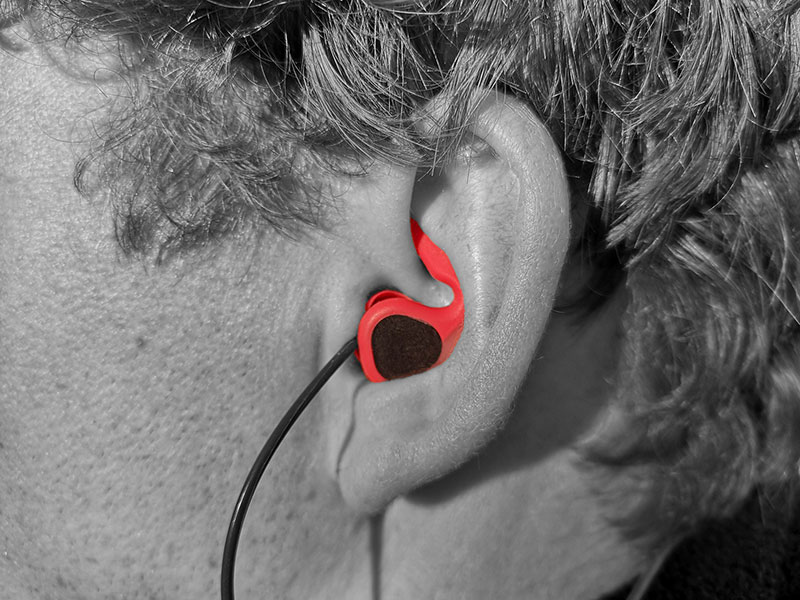What is Surfer’s Ear?
Surfer’s Ear is a condition characterized by abnormal bone growth within the ear canal. This phenomenon, medically known as exostosis, is the body’s natural response to repeated exposure to cold water and wind.
The bone growth serves as a protective mechanism for the eardrum but unfortunately continues to grow over time. This condition is prevalent among surfers due to their frequent exposure to windy and wet conditions—hence the name, Surfer’s Ear.
The rate of bone growth can vary among individuals and is influenced by factors such as water temperature and frequency of exposure.

Fact: 10 Years of Surfing Equals 84% Risk Of Surfer’s Ear
What are the Symptoms?
Water Retention: If you find that water remains trapped in your ears after a surf session, it could be an early sign of Surfer’s Ear.
Recurrent Ear Infections: The narrowing of the ear canal makes it difficult for water to drain, increasing the risk of infections. This risk is particularly heightened for surfers who travel from colder to warmer climates with more polluted waters.
Advancements in wetsuit technology have enabled surfers to spend more time in colder waters, inadvertently increasing the prevalence of Surfer’s Ear.
Learn more about frequently asked questions regarding Surfer’s Ear and its implications
The Statistics
Recent studies conducted at surf events in Ireland and California revealed that:
75.7% of the 107 surveyed surfers showed some degree of Surfer’s Ear.
Among those who had surfed for over 10 years, the prevalence rose to 84%.
Half of these long-term surfers had severe ear canal closure.
2X World Champ Tom Carroll after his operation removing surfer’s ear.

Prevention: Act Early to Save Your Ears
1. Early Action
Take early preventive action against Surfer’s Ear to slow bone growth and reduce the likelihood of complications such as ear infections and hearing loss.
2. Ear Plugs
Use ear plugs to keep cold water and wind from entering your ear canal.
3. Extra Gear
Consider hooded wetsuits for added protection and use ear drops to clear trapped water.
4. Regular Checks
Frequent ear exams can catch the condition early, making treatment more effective.
Following these steps will help minimize your risk of Surfer’s Ear.
Why Choose SurfEars?
Traditional ear plugs can muffle sound, leaving you feeling disconnected in the water. SurfEars tackles this problem with an innovative design that incorporates acoustic mesh.
This feature allows you to hear clearly while effectively keeping water out, substantially reducing the risk of conditions like Surfer’s Ear and Swimmer’s Ear.
What sets SurfEars apart is its modular design and customisable fit, designed to accommodate 99% of all ears. Plus, the optional leash minimises the risk of misplacing or losing your plugs.
Where to buy SurfEars?
Buy SurfEars on our online e-commerce store here



